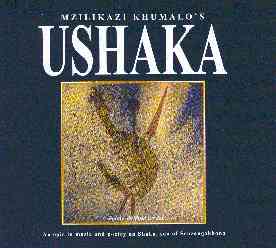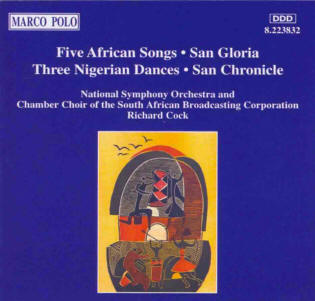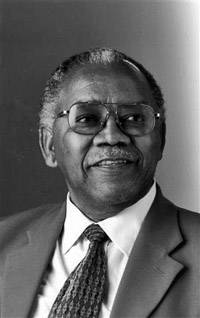Home
Blog
Composers
Musicians
Black History
Audio
About Us
Links
Composers:
Adams, H. Leslie
Akpabot, Samuel Ekpe
Alberga, Eleanor
Bonds, Margaret Allison
Brouwer, Leo
Burleigh, Henry Thacker
Coleridge-Taylor, Samuel
Cunningham, Arthur
Dawson, William Levi
Dede, Edmund
Dett, R. Nathaniel
Elie, Justin
Ellington, Edward K. "Duke"
Euba, Akin
Garcia, José Mauricio Nunes
Hailstork, Adolphus C.
Holland, Justin
Jeanty, Occide
Johnson, James Price
Joplin, Scott
Kay, Ulysses Simpson
Khumalo, Mzilikazi
Lambert, Charles Lucien, Sr.
Lambert, Lucien-Leon G., Jr.
Lamothe, Ludovic
Leon, Tania
Moerane, Michael Mosoeu
Perkinson, Coleridge-Taylor
Pradel, Alain Pierre
Price, Florence Beatrice Smith
Racine, Julio
Roldan, Amadeo
Saint-Georges, Le Chevalier de
Sancho, Ignatius
Smith, Hale
Smith, Irene Britton
Sowande, Fela
Still, William Grant
Walker, George Theophilus
White, José Silvestre
Williams. Julius Penson
AfriClassical Blog
Companion to AfriClassical.com
Guest Book
William J. Zick, Webmaster,
wzick@ameritech.net
©
Copyright 2006 - 2022
William J. Zick
All rights reserved for all content of AfriClassical.com

Ushaka KaSenzangakhona:
An epic in music and poetry on Shaka, son of
Senzangakhona
National Symphony Orchestra of SABC
Robert Maxym, Conductor
Mzilikazi Khumalo, Choral Director
Sony CDCSL 8047 (1997)

Five African Songs
National Symphony Orchestra and Chamber Choir of the
South African Broadcasting System
Richard Cock, Conductor
Marco Polo 8.223832 (1995) |
Home ->
Composers -> Khumalo, James Stephen Mzilikazi
Français
1 Birth
SAMRO, the Southern African Music Rights Organization, maintains
a comprehensive biography which is the primary source for this
page. It begins with the composer's birth in 1932 on a Salvation
Army farm:
|
James Stephen Mzilikazi Khumalo was
born on 20 June 1932 on the Salvation Army farm,
KwaNgwelu (known as Mountain View in English), in the
Vryheid district of Natal, South Africa, where his
parents were being trained as Salvation Army ministers. |
2 Mzilikazi
SundayWorld.co.za paid tribute to James Stephen Mzilikazi
Khumalo on July 9, 2012, shortly after his 80th birthday,
celebrated June 20, 2012. The article by Mzwandile
Kabizokwakhe was entitled Up Close & Personal with James
Stephen Mzilikazi Khumalo:
|
"It was
only when I was older and I composed my first work of
music that I started using Mzilikazi exclusively as my
signature on my work." |
|
3 Spirituality
The SundayWorld article of July 9, 2012 continues:
|
Born to
deeply religious parents, Andreas and Johanna, Khumalo
imbibed a spirituality he has transferred to all his
musical compositions from his first work Ma Ngificwa
Ukufa in 1958 to his current composition Hallelujah
Mdumiseni Nonke - written in the rondo style. |
4 Elementary
School
The SAMRO bio relates that the family soon left for Durban,
where the child entered elementary school:
|
Shortly after his birth, his parents
were
ordained in the ministry, and the family
moved to Durban, and later to Hlabisa, where his
schooling began. Here also began his life-long
involvement with choral music - he became a member of
the school's children's choir, and participated in
singing at community events such as weddings. During
this period, Khumalo developed a deep love
for traditional music. |
5 Euphonium
We learn next from the SAMRO bio of Khumalo's exposure to
Western music, the euphonium and staff notation in his first
senior school:
|
In the late thirties the family moved
to Vryheid, where Khumalo became a member of the senior
school choir and was introduced to Western vocal music.
He also became a member of the church band, playing solo
euphonium, and learned staff notation in addition to the
tonic sol-fa with which he was already familiar by this
time. |
6 Soweto
The young student's education was interrupted for a year while
he was away from his home area, the SAMRO bio says:
|
After spending a year in Vendaland,
Khumalo continued his schooling at the Fred Clarke High
School in Soweto, where again he was a member of the
school choir, later occasionally taking rehearsals and
training the soloists, as well as helping with the
training of the junior school's choir. |
7 Graduation
Khumalo graduated from high school in 1950, then worked for a
year to earn money for college. A scholarship enabled him to
enroll in a three-year program at a teacher's training college
in Mamelodi, to become prepared for teaching high school. SAMRO
explains his further education:
|
Then, he continued his studies,
obtaining the BA degree with majors in English and Zulu
in 1956 from the University of South Africa, and later
went on to completing his MA and PhD degrees. |
8 Composer
Khumalo began teaching at the Wallmansthal Secondary School, in
the district of Pretoria, the bio relates, and began composing
music. His first composition was Ma Ngificwa Ukufa. After its
1959 premiere, the piece was selected for the Teacher's Section
of the first National Choral Festival of the African Teachers
Association of South Africa (ATASA), which took place in 1961 in
Bloemfontein. Khumalo also conducted many choirs at this
festival, where his charges usually won the choral competitions,
and for which he was engaged also to compose many choral works.
9 Music Theory
The bio makes clear that Khumalo pursued a wide range of music
studies, including music theory, composition and singing, at
various locations:
|
He studied music theory, harmony,
counterpoint, form and composition under Charles Norburn
of Pretoria and continued composing, setting many poems
by B.W. Vilakazi. He also studied singing under Prof.
Khabi Mngoma of the University of Zululand, and, later,
under Zandi Casan of the University of the
Witwatersrand. |
10 African
Languages
Khumalo began as a tutor in the Department of African Languages
of the University of the Witwatersrand, Johannesburg in 1969. He
advanced steadily to the positions of Professor of African
Languages and Head of the Department.
11 Black Folk Music
The bio relates that Khumalo interrupted his career as a
composer after 1980 to collect and arrange Black folk music:
|
After 1980 he rekindled his interest
in
traditional African music and stopped
composing for a while in order to study the genre,
concentrating on collecting and arranging black folk
music. After writing Izibongo ZikaShaka, he met Prof.
Themba Msimang, a poet who has supplied the lyrics for
many of his compositions. |
12 Soweto
Songsters
Khumalo has often served as an ajudicator of major choral
compositons. He is both Conductor and Director of the Soweto
Songsters, the Central Division Songsters of the Salvation Army.
The group has performed in Britain, Israel and Norway.
13 Khumalo
Festival
SAMRO recounts that a music festival was held in 1983 in
recognition of Khumalo's work as a composer:
|
A special Music Festival was given in
Khumalo's honour in November 1983 by the Amazwi KaZulu
Choir "in recognition for [his] persistently high
quality output as a composer, and [his] magnificent Zulu
idiom in some of [his] best compositions" (Chris Mchunu,
PRO). |
14 Contest & Ceremony
The bio recounts that the composer won a major songwriter
contest and wrote another work in honor of Archbishop Desmond
Tutu:
|
He won the African Bank Tenth
Anniversary Songwriter Contest with a work titled
Isibaya Esikhulu Se-Afrika, and wrote Intonga YoSindiso
for the enthronement in 1986 of Archbishop Desmond Tutu
(from whom Khumalo learned to play cricket). |
Khumalo has also been
commissioned to write music for a number of high-profile
occasions.
15 People of Africa,
Unite!
Since 1989, Khumalo and his SAMRO colleague Richard Cock have
jointly served as Music Director of the annual Sowetan Nation
Building Massed Choir Festival. Five African Songs is Kumalo's
arrangement of four traditional songs and one modern tune for
choir and symphony orchestra. It has been recorded by the
National Symphony Orchestra and Chamber Choir of the South
African Broadcasting Corporation, led by Richard Cock, Conductor
and is available on Marco Polo 8.223832 (1995). Two of the five
songs are in the Xhosa language, and the other three are in
Zulu. In the liner notes Khumalo comments on the one
contemporary song:
|
Banto Be-Afrika Hlanganani is a song
in
modern African traditional style composed on the Nation
Building theme: "People of Africa, unite!" |
16
Ushaka
KaSenzangakhona
Prof. Khumalo is also the composer of the opera Ushaka KaSenzangakhona:
An epic in music and poetry on Shaka, son of Senzangakhona, a
blend of Zulu and European elements. This work is
performed by the National Symphony Orchestra of the SABC, led by
Robert Maxym, Conductor, and Mzilikazi Khumalo, Choral Director.
Soloists are Sibongile Mngoma, soprano;
Sibongile Khumalo, mezzo-soprano; Themba Mkhwani, tenor; and
Peter Mcebi, baritone. The recording is Sony Classical CDCSL 8047
(1997). It is available from SAMRO, whose address is below.
The Narrator is Prof. Themba Msimang, a Professor of African
Languages at the University of South Africa.
He writes in the liner notes that he and Khumalo found they
shared an interest in the history of King Shaka, founder of the
Zulu Empire. The two became friends, and ultimately
Msimang wrote an epic narrative on King Shaka from the Zulu
perspective, which Khumalo set to music. The four parts of
the opera have descriptive titles:
|
PART 1
- The circumstances surrounding
the birth of Shaka.
PART 2 - His youth and the difficulties he
endured as a result of his rejection by his father's
court. Shaka eventually
overpowers his enemies and takes the
Zulu throne.
PART 3 -
His reign which is likened to
thunder. His victories are recounted and
the section ends with traditional praises
dedicated to King Shaka.
PART 4 - The death of King Shaka. |
17 Significance of Opera
SAMRO explains the artistic and cultural
significance of the work in its bio of Mzilikazi Khumalo:
|
This large-scale work for full
orchestra, choir and soloists was commissioned by the
Foundation for the Creative Arts (FCA), and relates the
story of the Zulu King Shaka in praise poetry and music.
It is 'a work of major proportions and major
significance. .... a complex piece which, at various
levels, combines two great cultural traditions: on the
one hand, that of Zulu poetry and song and, on the
other, the instrumental and orchestral
tradition of Europe' (Stephen Wikner, Artistic Director,
Transvaal Philharmonic Orchestra). The premiere peformance was given on 25 November 1994 in the City
Hall, Johannesburg by massed choirs with the
above-mentioned orchestra, conducted by the
American-born Robert Maxym. (Printing of the vocal parts
of
this work was sponsored by SAMRO.) |
18 Emeritus Professor
Dr.
James Stephen Mzilikazi Khumalo is now an Emeritus Professor of the
University of the Witwatersrand, Honorary Professional Research
Fellow in its School of Music, and Vice-Chairman of the Board of
Directors of SAMRO. The bio points out that he also played a
role in producing an official version of the South African
National Anthem, at the request of President Nelson Mandela.
Khumalo also serves on the Music Committee of the National Arts
Council.
19
Lifetime Award
The website of Book SA, reported in an article dated June 18,
2007 that Prof. Khumalo had received a Lifetime Achievement
Award in connection with the M-Net Prizes for fiction:
|
The
2007 M-Net Prizes for fiction - the only major literary
awards in South Africa for black African languages, in
addition to English and Afrikaans - were announced last
night at a joint function with the
Via Afrika Awards in Cape Town.
An
M-Net “Lifetime Achievement Award” accompanied them: it
went to Professor Mzilikazi Khumalo, former head of the
Department of African Languages at
Wits, for a life
spent in the service of African literature.
All the
awards are worth R30 000. |
20 Family
The SundayWorld article of July 9, 2012 continues:
|
Khumalo, a high school teacher by training, and his
wife, Ditlhare, have four children who he says are not
that musical.
"My third son has a degree in music but is a church
minister and my first daughter sings but is a medical
doctor," he says. |
21 Mzilikazi: Emhlabeni
Mzilikazi: Emhlabeni
was written by the South African composer
Bongani Ndodana-Breen.
Gwen Ansell's interview with him was published in Business Day
Live, April 4, 2013. It reads, in part:
|
Based
in Cape Town, we talk in Johannesburg on the eve of the
premiere of his piano concerto, Mzilikazi: Emhlabeni, at
the city’s International Mozart Festival...
...
The new
concerto marked an additional landmark: "It was my first
piano concerto and, I believe, the first such from a
composer of colour here. It’s a homage to Prof Mzilikazi
Khumalo, a great man of music and letters, but also —
because it is based on his liberation anthem, Bawo Thixo
Somandla — a bridge between the two parallel musical
worlds that have grown up here: the white
orchestral/classical world and the black choral world." |
22 SAMRO Ltd
This page was made possible by an official biography generously
provided by SAMRO Ltd.,
P.O. Box
31609 Braamfontein, 2017 Johannesburg, South Africa
www.samro.org.za/
This page was last updated
on
March 5, 2022
|



